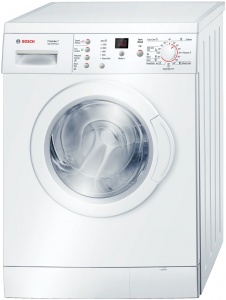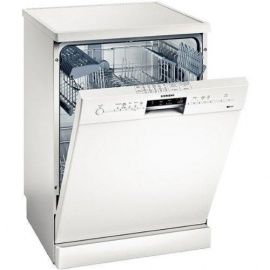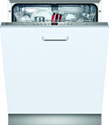Saving Money & ECO Friendly Tips For All Your Kitchen Appliances.
In this guide we're going to be giving some tips and advice on how to create an efficient and ECO friendly kitchen with the end result of saving you money and to help you do your part for the environment. The guide will be split in to 2 main sections:
- What to look for in a new appliance.
- Tips to improve your current kitchen.
What To Look For In A New Appliance
If your looking to replace your kitchen appliances and want to create the most efficient kitchen, it's worth remembering that buying the cheapest appliances won't always be the cheapest in the long run. For example, if you buy a cheap washing machine with a low energy efficiency rating and high water consumption you'll likely find that over the course of a year or two, the amount you saved by initially buying a cheaper machine has been spent on energy and water.
A full run down of terminology you'll find on appliances can be found here, but for sake of ease, below is a list of features that can be found across various appliances, all of which should help save money or be ECO friendly.

Automatic Dosage System:
Found on washing machines this feature (which can sometimes come under different manufacturer specific names) is an intelligent invention that uses sensors to analyse the wash load and automatically apply the correct amount of detergent and softener needed. It may not be the biggest money saver, but having the feature means you should never unnecessarily overuse on detergent/softener making them last as long as possible while giving you the optimum results.
Energy/Water Consumption
Weather it's down as energy or water consumption will depend on the appliance most of which will will either be listed as per cycle, per month or per year. It likely goes without saying but the lower the number the better as less energy/water consumed means less money spent on their bills.
Energy Efficiency Class
The energy efficiency class is the rating which an appliance is given on its EU Energy Label. These labels and ratings can be found on all types of appliances and quite simply, the higher the grade the more efficient and more money you can save over time.
Cool Door/Glazed Door
For cooking appliances with a door (ovens and range cookers) some of them you will find have features which keep the door cool and trap the heat inside the oven cavity better. Keeping as much heat trapped inside the cavity means you can cook food quicker, ad the faster you can cook, the less time you need to keep it on using up electricity.
Economy Programmes
Economy programmes are often found on washing machines, tumble dryers and dishwashers. The way they function varies from appliance to appliance but the general idea is that they take longer than a normal cycle but actually consume less electricity. For instance on a dishwasher the most energy consuming part of the cycle is heating up the water to it's required temperature, on an economy programme the cycle lasts longer but is done at a lower temperature meaning it will use less energy getting the water up to heat.
Tips For Your Current Kitchen
All of the above advice is good, but if you already have your kitchen planned and the appliances in place, maybe your just looking for a few extra fixes or changes you can perform to tighten up your kitchen space and save you some money here and there, after all saving small amounts in multiple places can quickly add up to a decent amount saved.
Don't Let Heat Escape
This is a big mistake that people always seem to make and can be applied across multiple appliances and that is letting heat escape when cooking which reduces the efficiency and extends the time needed to cook. The main offender for this is when cooking in an oven and you open the door to check on your food. Doing this can easily drop the temperature by 25 degrees within a short period of time and can be even higher if it's left open for longer periods. Sometimes this can't be avoided, such as when you need to tend to the food, but if you just want to look at the food to see what stage it's at then your far better off turning the oven light on for a couple of seconds and having a quick through the front window.
A similar kind of theory can also be applied to when your trying to boil water on a stove. If you keep the lid on while heating up it will trap the heat in the pan and allow it to boil much faster compared to if you keep the lid off.
Another tip for your oven is to use the heat efficiently. With modern ovens you don't need to preheat the oven for ages before it gets up to heat (especially as when you put the food in it will drop as the door opens) so if your heating the oven for longer than needs be then it's just wasting time and money. Similarly when you are getting near the end of the cooking time, you can just turn the oven off and let it finish cooking using the retained heat in the cavity. This will require a bit of knowledge of your own oven to know how much heat it can retain and for how long, but over the space of the year it can be quite a good money and energy saver.
Fuel Type?
It's hard to be able to accurately list which fuel type out of gas and induction would be a better choice as Induction is a more efficient (read here for more information as to why) but will not necessarily be cheaper to run due to the fuel costs in your area. It's likely that an induction would run cheaper due to the less amount of time it spends on in comparison to gas.
Only Use What You Need
This one may sound obvious but most people are guilty of it at one point or another and that is over using the ingredients available. If your cooking a meal you only want to buy and use what will be needed and eaten (unless your purposefully making more for leftover work lunches!)
This can also be extended to the water use for both cooking and using a kettle. When your cooking with water, for example covering vegetables in a pan, then you want to make sure you have enough to cover the food but not excessive amounts more. Putting more in will not only waste the additional water, but it will also take more time to boil it so you will also be wasting more of your gas/electricity too. The same logic can be applied to when your heating up a kettle for your tea or coffee, in an ideal world you would only put enough water in the kettle to fill the cup as anything additional is again wasted energy.

Washing Up - Manual VS Dishwasher?
At first glance you might think that washing up by hand would be more efficient than using a dishwasher, but the opposite is actually more accurate. If you have a full load to be washed then you will find a machine will be able to clean it more efficiently (especially if it has an economy program which you can select) than doing so by hand.
If you use a half load option, the machine become less effective to run as even though it's only cleaning half the load it will consume more than half of the energy & water that a full load will use. This means if you only need to clean a few things and you can't wait until the machine is full, you will likely be better off hand washing them and leaving the dishwasher for a full load.
Use Free Alternatives Wherever Possible
Although this won't be an option that's available too often, it's still something to consider as chances are if there's a free alternative to using an appliance it will be cheaper (obviously) and more energy efficient. An example of this is in the summer using a washing line to dry your clothes instead of a tumble dryer. Free alternatives will possibly have downsides, in this instance it takes longer to dry on the line than in a dryer, so you will need to weigh out the pros/cons and decide if it's worth it for you.
Look After Your Appliances
This applies to most possessions in life and not just appliances, but the better you look after them the better they will work better and more efficient. For instance with an appliance that has a filter, such as a tumble dryer or extractor hood, keeping the filter clean as possible and removing any built up dirt in it will allow it to function closer to it's full capacity.
Sealing Up Vent Space
Speaking of extractors and tumble dryers, if you have them set up in a vented extraction mode using ducting, you will want to be sure that the area around the rim of the vent is sealed up and fits snug against the wall. If not there is a possibility for air to sneak in to the house and even though this won't directly impact your kitchen appliances, it can cause it to be cooler than it should be leading you to need the heating on more.
Switching Off Standby
Although leaving 1 appliance on standby all year when not in use won't run you up much of an additional bill, when you factor the amount of appliances you keep on standby at any 1 time (both in and out of the kitchen) it becomes easy to see how it can end up costing you quite a bit. A study by the Energy Saving Trust called 'Powering The Nation' has revealed than on average a UK household spends between £50-£85 on appliances in a standby state. This does take in to account all types of appliances and not just ones in the kitchen, but it makes it easy to see how just doing something simple like turning off your appliances instead of keeping them on standby can save money. After all, who really ever pays attention to the clock on your microwave anyway?
Sometimes, You Gotta Spend Money To Save Money
Unfortunately, for those who are trying to save as much money as possible, you may find that in the long run a good way to save money is to invest in good tools/appliances. This could cover buying high quality knives which you can sharpen yourself and won't dull as easy all the way up to splashing out a bit more on your washing machine to make sure you get one with all the energy saving features you need.





















